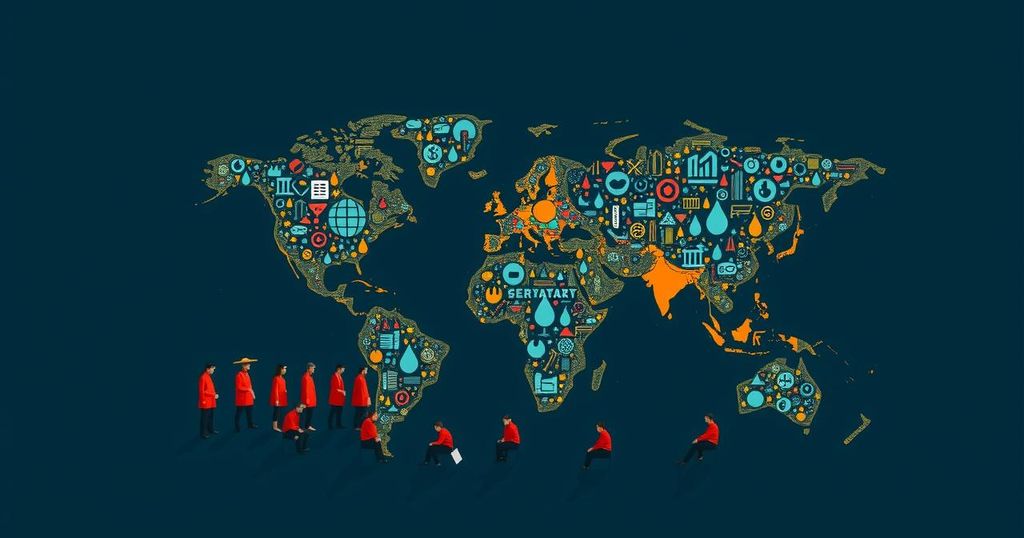Under the COP29 climate summit in Azerbaijan, there is a pivotal focus on securing $1 trillion annually to assist poorer nations in combating climate change impacts by 2030. The dire financial requirements, estimated to exceed $2 trillion annually, underscore the urgency in addressing climate funding disparities. Tensions among negotiating nations could complicate attaining these financial commitments, with notable figures advocating for collaborative efforts despite political differences.
The ongoing COP29 climate summit in Azerbaijan has brought to light the pressing financial needs of developing nations to combat the growing impacts of climate change. According to a report by the Independent High-Level Expert Group on Climate Finance, approximately $1 trillion will be required annually by 2030, a significant increase from previous estimates. Achieving this funding hinges on the cooperation of wealthier countries, a challenge underscored by the past issues in meeting the 2009 commitment of $100 billion a year, which was only fulfilled last year. As discussions progress, the urgency to secure financial support for climate adaptation and the transition away from fossil fuels remains a focal point. Estimates suggest that the financial requirements could exceed $2 trillion per year, with developing nations advocating for a minimum of $1.3 trillion. The aim is to establish a baseline of at least $1 trillion annually—equivalent to about 1% of the global economy—by 2035. An update from the IHLEG is anticipated, which may provide additional insights on the financial implications of climate action. The atmosphere at COP29 remains tense, highlighted by the recent criticisms levied by Azerbaijan’s president against France’s colonial past, and Argentina’s President Javier Milei withdrawing his delegation from the negotiations. Additionally, Barbados Prime Minister Mia Mottley has taken a proactive approach by inviting former President Donald Trump to engage in dialogue to find common ground on climate issues. Her call for unity emphasizes the human capacity for cooperation, regardless of differences, in striving to address global crises.
The financial discourse at COP29 is set against the backdrop of an escalating climate crisis that disproportionately affects poorer nations. Leading economists estimate that substantial funding is critical for these countries to mitigate the effects of climate-related disasters and transition from fossil fuel dependency. Past commitments made in climate finance, notably the $100 billion annual promise from 2009, have proven difficult to realize, leading to calls for updated and more actionable financial pledges. The financial urgency is further emphasized by the recent report from the Independent High-Level Expert Group on Climate Finance, which suggests an accelerated timeline to secure these funds. This is indicative of the growing recognition of the significant investments required as the climate emergency intensifies, underscoring the need for equitable financial contributions from developed nations. The summit is notable not only for its financial discussions but also for the complex international relations at play, as various leaders navigate both political and environmental challenges.
The COP29 summit serves as a critical juncture in the fight against climate change, particularly regarding the need for substantial financial commitments from wealthier nations to support developing countries. The target of $1 trillion yearly by 2030 highlights the urgent financial challenges faced in addressing climate impacts. However, negotiations remain fraught with tension and geopolitical complexities. The tone set by influential leaders may shape the direction and effectiveness of climate finance discussions in the coming days, indicating a vital need for collaboration and dialogue.
Original Source: www.theguardian.com







